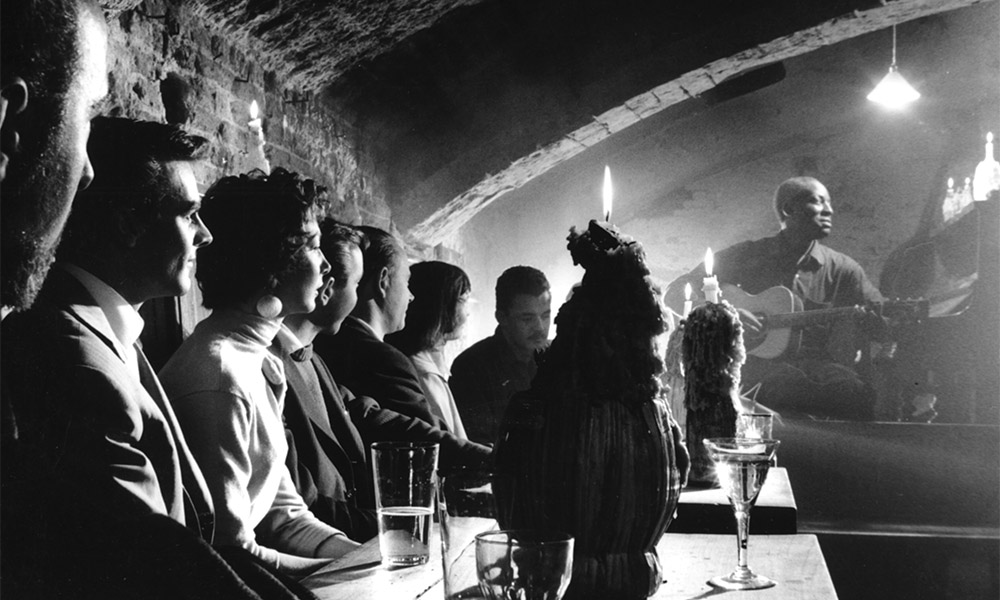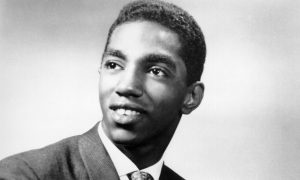“Key To The Highway” is one of those many blues songs with murky origins and controversy about who exactly penned the lyrics. Though the song is associated with Big Bill Broonzy, it was first recorded by piano player Charlie Segar – who was known as the “Key Board Wizard Supreme” – in February 1940. A few months later, Broonzy played guitar on a version by Jazz Gillum before recording his own version in 1941 (with Gillum returning the musical favor and playing harmonica on that cover). All three claimed a hand in the authorship of the song, though Broonzy’s acoustic eight-bar-blues version (the original was 12-bar) became the standard-bearer.
Listen to the evolution of “Key To The Highway” on Spotify.
The song is about an itinerant bluesman who leaves home to travel the highways after splitting from his lover. Mance Lipscomb, who recorded a version in the 50s, said that the phrase “key to the highway” referred to a person’s feet. Broonzy told historian Studs Terkel that the melody he used was the one he first heard as a young boy in Arkansas, played on the banjo by his uncle. Broonzy is credited as co-writer (with Segar), and he told Terkel that all blues writers took songs and made others from them by “changing a little bit.” Of “Key To The Highway” he said: “Yeah, I wrote it, yeah. In a way – I’ll say I wrote it; and Charles Segar – he was in it too.”
I got the key to the highway
Billed out and bound to go
I’m gonna leave here runnin’
Because walkin’ is much too slow
…
Give me one more kiss, mama
Just before I go
’Cause when I’m leavin’ here
I won’t be back no more
An anthem of the homeless
As well as a lament about leaving a lover to roam the US, the song was praised as an “anthem of the homeless” when Broonzy’s original version was inducted into the Blues Hall Of Fame in 2010. Broonzy also recorded a remarkably moving adaptation on The Big Bill Broonzy Story, the record he cut months before his death in 1958.
Among the dozens of leading blues musicians who have subsequently recorded versions are John Lee Hooker, BB King, Freddie King, Brownie McGhee and Sonny Terry, Buddy Guy, and Muddy Waters. Yet despite its status as a blues classic, the song has only made the Billboard charts once, in 1958, in a stunning version by Little Walter.
Harmonica maestro Walter adapted the song for the Chicago blues sound, playing with a talented band that included Otis Spann on piano, revered songwriter Willie Dixon on bass, and Muddy Waters on slide guitar. Walters’ sizzling, gnarly version spent 14 weeks on the charts and influenced a host of musicians, including Keith Richards. The Rolling Stones’ guitarist chose the track as one of his BBC Radio 4 Desert Island Discs songs in 2015, saying, “It’s top-of-the line rhythm’n’blues by Little Walter. If I’m on a desert island, where’s the highway?”
The Rolling Stones recorded a highly credible version of “Key To The Highway” at Chess Studios in November 1964, though it remained unreleased for years. In addition, their album Dirty Work features a “hidden” track with Ian Stewart playing 30 seconds of the song, while Richards has also revisited the song live with Eric Clapton.
“Key To The Highway” has appeared in different genres over the years (including an accordion version by Clifton Chenier and a big-band-style take by Dinah Washington). Arguably one of the finest versions is by Jimmy Witherspoon, with gorgeous tenor saxophone accompaniment from the jazz giant Ben Webster.
Perhaps, the most interesting version of “Key To The Highway” appeared in a landmark rock album from 1970: Derek And The Dominos’ Layla And Other Assorted Love Songs. The album features a nine-minute jam version of the song, as Eric Clapton and Duane Allman take dazzling turns with beautiful chord changes. It has a hypnotic power.
Clapton has returned to the song numerous times over the years, including separate duet versions with BB King and The Allman Brothers. “When I was about 14, I saw Big Bill Broonzy on TV and that was an incredible thing,” Clapton told Guitarist Magazine in 2003. “This was a real blues artist and I felt like I was looking into heaven. That was it for me, and then, when I went to explore his music, the song that always came back to me was an incredible version of ‘Key To The Highway.’ That was the one that I thought somehow would, like ‘Crossroads,’ capture the whole journey of being a musician and a traveling journeyman.”




